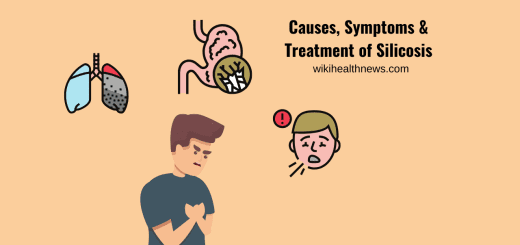Are Seaweeds Healthy to Eat? Exploring the Nutritional Benefits

Seaweeds, also known as marine algae, have long been a staple in many coastal diets, particularly in East Asia. These nutrient-dense plants thrive in saltwater environments and come in a variety of colors, including green, red, and brown. They are most commonly consumed in forms such as nori (used for sushi), kombu, wakame, and dulse, which have become increasingly popular worldwide due to their potential health benefits. But are seaweeds healthy to eat? In this article, we will explore the nutritional profile of seaweeds, their health benefits, and important considerations for those looking to incorporate them into their diets.
Nutritional Value of Seaweeds
Seaweeds are incredibly nutritious, offering a variety of essential vitamins, minerals, and antioxidants. Here are some of the key nutrients found in these marine plants:
- Vitamins and Minerals: Seaweeds are rich in several important vitamins, including vitamin A, vitamin C, vitamin K, and folate. They are also an excellent source of minerals, especially iodine, calcium, iron, magnesium, and potassium.
- Iodine: One of the most notable aspects of seaweed is its high iodine content. Iodine is an essential mineral that supports thyroid function, which regulates metabolism. Just a small serving of seaweed can provide a significant portion of the daily recommended intake of iodine.
- Antioxidants: Seaweeds contain a range of antioxidants, including carotenoids (such as beta-carotene) and polyphenols, which help combat oxidative stress and protect the body against free radical damage. These antioxidants are known for their anti-inflammatory properties, potentially lowering the risk of chronic diseases.
- Fiber: Seaweeds are a great source of dietary fiber, particularly soluble fiber, which aids in digestion, promotes gut health, and helps maintain healthy cholesterol levels.
- Protein: While seaweed is not a complete source of protein like animal products, it does contain some essential amino acids, making it a good supplemental protein source, particularly for vegetarians and vegans.
Health Benefits of Eating Seaweed
Seaweed offers a variety of health benefits, thanks to its impressive nutritional profile. Let’s look at some of the key benefits:
1. Supports Thyroid Function
As mentioned, seaweeds are exceptionally rich in iodine, which is crucial for thyroid health. The thyroid gland regulates metabolism, energy levels, and growth, and iodine deficiency can lead to thyroid problems, such as hypothyroidism. Including iodine-rich foods like seaweed in your diet can help support normal thyroid function and prevent iodine deficiency.
2. Boosts Heart Health
The high levels of omega-3 fatty acids found in certain seaweeds, such as brown algae, may help reduce the risk of cardiovascular disease. Omega-3s are well known for their ability to lower blood pressure, reduce triglycerides, and decrease inflammation in the body. Additionally, the soluble fiber in seaweed helps lower cholesterol levels, which further supports heart health.
3. Improves Gut Health
Seaweeds are an excellent source of prebiotic fiber, which feeds the beneficial bacteria in the gut. A healthy gut microbiome is associated with improved digestion, better immune function, and even enhanced mental health. The soluble fibers in seaweed, like alginates, can also help regulate bowel movements and prevent constipation.
4. Enhances Skin Health
The antioxidants found in seaweed, including vitamins A and C, may help protect the skin from damage caused by UV radiation and environmental stressors. These antioxidants, along with seaweed’s anti-inflammatory properties, can also promote healthy, youthful-looking skin by reducing the appearance of wrinkles and fine lines. Some studies even suggest that certain seaweed compounds may help to hydrate and nourish the skin, improving its elasticity.
5. Weight Management
Seaweed may aid in weight management due to its high fiber content, which helps promote satiety and reduce overall calorie intake. Additionally, some seaweeds contain compounds called fucoxanthin (found in brown algae) that have been shown to support fat metabolism and increase fat oxidation.
6. Rich in Anticancer Properties
Several studies have suggested that the bioactive compounds found in seaweeds, including polyphenols and sulfated polysaccharides, may possess anticancer properties. These compounds have been shown to inhibit the growth of cancer cells in laboratory studies and animal models. While more research is needed to confirm these effects in humans, the preliminary findings are promising.
How to Incorporate Seaweed into Your Diet
Adding seaweed to your diet is easier than you might think. Here are a few ways to enjoy the health benefits of seaweeds:
- Sushi and Sashimi: Nori, a type of seaweed, is most commonly used to wrap sushi and sashimi. It’s also available in snack form and can be eaten as a crispy, flavorful treat.
- Seaweed Salads: Wakame is a popular seaweed used in Japanese salads, often combined with sesame oil, vinegar, and soy sauce. It’s easy to prepare and can be added to a variety of salads.
- Soups and Broths: Seaweed such as kombu is often used in broths and soups, like miso soup. It adds flavor and nutrition to your meal without overwhelming the taste.
- Smoothies and Powders: Seaweed powder or dried seaweed flakes can be added to smoothies, shakes, or sprinkled over salads and other dishes. Seaweed supplements are also available for those who prefer a more concentrated form of nutrition.
Considerations When Eating Seaweed
While seaweed is highly nutritious, it’s important to be mindful of a few considerations before incorporating it into your diet:
1. Iodine Overload
While iodine is essential for thyroid health, too much iodine can lead to thyroid dysfunction, particularly in people with preexisting thyroid conditions. Consuming large quantities of seaweed, especially varieties like kelp, may contribute to excessive iodine intake. It’s important to enjoy seaweed in moderation and consult with a healthcare provider if you have thyroid issues.
2. Heavy Metals
Seaweed can absorb and concentrate heavy metals from the ocean, including mercury, lead, and arsenic. While the levels of these contaminants are generally low, it’s a good idea to purchase seaweed from reputable sources that test their products for heavy metal contamination.
3. Sodium Content
Some types of seaweed, especially those used in processed snacks, can be high in sodium. If you are on a low-sodium diet or have high blood pressure, be cautious with the amount of seaweed you consume.
Conclusion: Is Seaweed Healthy to Eat?
Seaweeds are undeniably healthy, offering a rich array of nutrients, including vitamins, minerals, fiber, and antioxidants. They support thyroid health, improve heart health, promote gut health, and offer potential anticancer benefits. However, like any food, moderation is key. While seaweed is a nutritious addition to your diet, it’s important to be mindful of potential risks such as excessive iodine intake, heavy metals, and high sodium content.
By incorporating seaweed into a balanced diet and choosing high-quality sources, you can enjoy the many health benefits that these marine plants offer. Whether you enjoy them in sushi, soups, or smoothies, seaweeds are a great way to boost your nutrient intake while supporting overall well-being.
Read More











